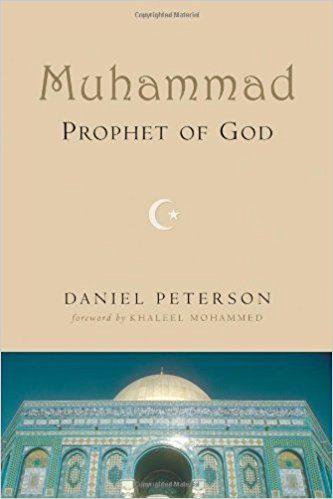
Continuing my excerpts from a manuscript:
By the year 632, Muhammad had subdued all of the Arabian peninsula. The revelation of Islam was complete. “This day I have perfected your religion for you and completed My favour to you,” says the Qur’an in the voice of God, in what many believe to be the last verse of the book to be revealed. “I have chosen Islam to be your faith.”[1] The tribes were now united, and the question arose, where could they plunder? They could not attack one another any more than members of a tribe were allowed to raid and pillage their fellow tribesmen. In fact, Muslims now regarded themselves precisely as a tribe. An expedition was therefore planned against the Ghassanids, a small Byzantine vassal state of Arabic background.
But in that same year, after a brief illness and before the planned expedition could be carried out, Muhammad died. This was unquestionably a shattering experience for the vast majority of Muslims. Muhammad was the Prophet of God; they had known no other. He had given Arabia a government for the first time in its recorded history. He had established their religion and welded both Muslims and Arabs into a people. A story will perhaps illustrate the awful impact the Prophet’s passing had upon the community of the believers.
When the news reached him that Muhammad was gone, Umar, a strong man who would later rule over the entire Islamic empire, seems to have grown virtually hysterical. He stood among the people and cried out that Muhammad was not dead, that he had merely gone to the Lord for a brief time. After forty days, he declared, the Prophet would return and would punish those who had falsely proclaimed his death. When Abu Bakr, an older man who would soon emerge as Muhammad’s first successor, heard the commotion, he entered into the room where the body of the Prophet lay. He uncovered Muhammad’s face and kissed him, saying, “You are dearer [to me] than my father and mother. You have tasted the death which God had decreed: a second death will never overtake you.” Then he covered the Prophet’s face again and went out. Umar was still manically denying Muhammad’s death outside of the mosque. “Gently, Umar. Be quiet,” Abu Bakr whispered to him. But Umar continued to cry out. Finally, standing up and addressing the bystanders, Abu Bakr said, “O men, if anyone worships Muhammad, Muhammad is dead. If anyone worships God, God is alive and cannot die.” Then he recited the words of the Qur’an:
Muhammad is naught but a Messenger; Messengers have passed away before him. Why, if he should die or is slain, will you turn about on your heels? If any man should turn about on his heels, he will not harm God in any way; and God will recompense the thankful.[2]
The effect on the old Muslim hero’s audience was immediate and profound. Even Umar later recalled, “When I heard Abu Bakr recite these words I was dumbfounded so that my legs would not bear me and I fell to the ground knowing that the apostle was indeed dead.”[3]
[1] 5:3.
[2] 3:138.
[3] The story is told in Ibn Hisham’s biography of Muhammad. I have borrowed some of the language of my paraphrase from A. Guillaume’s English translation of that biography, The Life of Muhammad (Karachi: Oxford University Press, 1967). Incidentally, critics of the Book of Mormon have often ridiculed the tendency of characters in the Nephite record to “fall to the ground” when under intense emotion or great religious excitement. Some have seen in such incidents echoes of nineteenth-century frontier revivalism. But similar behavior is abundantly recorded in the medieval Arab world— which, it must be remembered, is closely related to the world out of which the Book of Mormon claims to have come.












